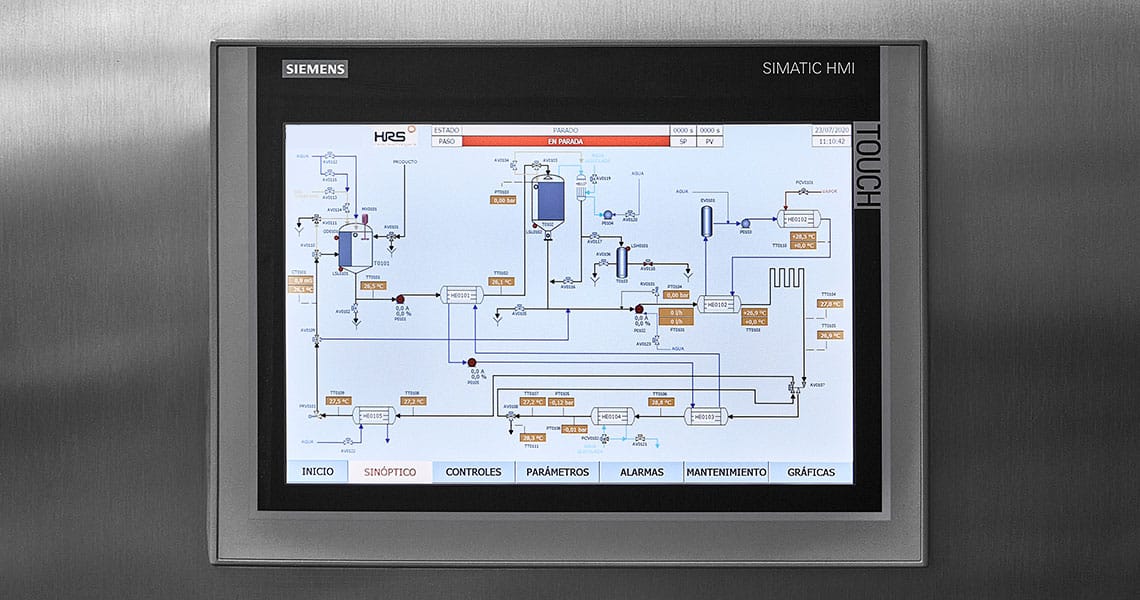The Future Potential of Process Control Systems

Thanks to developments like Industry 4.0, digitization, and the cloud, together with improvements in process control and communication technology, it is easier than ever to offer remote assistance and monitoring.
The restrictions on travel and face-to-face working imposed the Coronavirus pandemic highlighted the benefits of remote commissioning to companies, many of whom are now looking to extract the most from this technology.
HRS offers remote telemetry and control options for all applicable products and systems, using class-leading technology from both Siemens and Allen-Bradley Products. We are keen to exploit the potential of process controls to improve levels of operational knowledge, process management and operational efficiency.
Process controls can incorporate a range of functions, such as visualization and Human Machine Interface (HMI) solutions, as well as programming tools and advanced software applications. We utilize a combination of PLCs and graphic terminals to provide easy to use, reliable controls for human-machine interface operation.
HRS also utilizes a standard suite of bespoke software which has been developed in-house to monitor and control key parameters. This standard data can easily be transferred to remote systems – either those belonging to the client or HRS itself – using either hardwired (ethernet) or wireless (4G/5G) communication technology. Security is a key consideration and clients can be confident that their data and equipment will remain safe.
Remote operation and monitoring provide several benefits, including the ability for clients to view and control equipment from a central point. It also allows HRS staff to assist with operations such as commissioning, upgrading or running-in, and to provide ongoing technical support should this be required.
Looking to the future, digital process control technology is likely to become even more beneficial to processing industries. Engineers and commentators increasingly refer to the concept of a ‘digital twin’ – a virtual version of physical equipment which can be used to simulate changes to operations.
Such systems are already widespread in the design of heat exchange equipment, but in the future, they will be used for day-to-day management and operation. When coupled with artificial intelligence (AI), such virtual systems can determine optimum hygiene regimes, best energy efficiency and even the most productive time of day to run certain operations.
While our technology is not this advanced yet, as an industry we are getting closer. Digital twins will develop gradually as plant- and operational-data is slowly combined with corresponding models of the system. Information technology (IT) and operational engineering functions will need to become even closer, a trend which we are already seeing in many businesses. Industry 4.0 is a term that is often discussed, but not always fully appreciated. However, the last year has begun to show us what the near future will look like for process control.